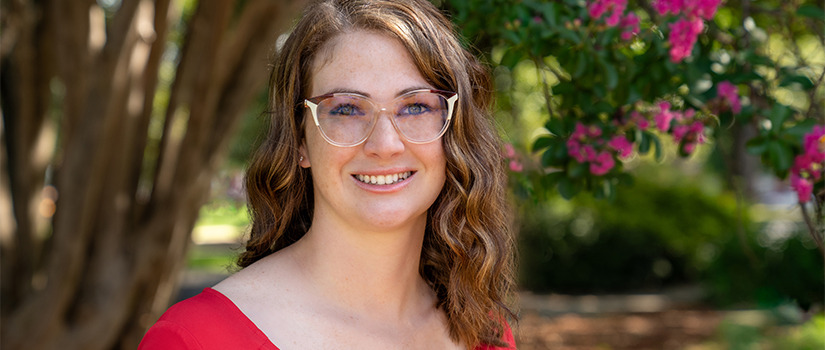Young alumna helps decrease number of opioid prescriptions in the Palmetto State
Her aunt’s breast cancer diagnosis first opened Chelsea Townsend’s eyes to the world of pharmacy and how medicine can heal. As she watched her aunt progress through chemotherapy treatment, so did Townsend's fascination with medicine.
Townsend earned her Doctor of Pharmacy degree in 2015. While working in retail pharmacy, Townsend championed an initiative to make naloxone available to counteract the effects of opioid overdose.
“Naloxone was made available via protocol, and it was something new,” she says. “Pharmacists had to go through several steps, developing counseling materials and prescription orders.”
Townsend helped develop a standardized process for her retail pharmacy location and later expanded it throughout her district.
In 2021, Townsend joined the South Carolina Department of Public Health in the Bureau of Drug Control as director of the Prescription Drug Monitoring Program, the only position that is not law-enforcement related. Focused on improving the state’s ability to identify and stop the unintended distribution of prescription drugs without impacting the intended use of medications, the program provides quarterly updates to online dashboards with actionable data for a rolling two-year period for opioids, benzodiazepines and stimulants.
The trends can even show where we may need to focus on targeted education to county level officials, specific patient demographic populations or health care providers ...
“These are public dashboards to help discover county and state level trends,” Townsend says. “The trends can even show where we may need to focus on targeted education to county level officials, specific patient demographic populations or health care providers located in counties whose numbers may trend higher than the state average.
“Year-over-year, we have seen a slight decrease in the number of opioid prescriptions.”
Townsend credits her career growth to her College of Pharmacy professors and her experiential education.
“I also worked two jobs throughout pharmacy school, which provided lasting connections,” she says. “All of this combined helped set me up for success.”
Townsend’s advice to current students is to focus on making connections.
“It is essential to get that experience while you are in school so you can apply what you are learning to real-life situations,” Townsend says.
She encourages alumni to serve as mentors. Townsend still has pharmacists she mentored as students come to her for advice.
“Students are always looking for someone to share their experiences and guide them,” she says. “Our pharmacy community is so small that those relationships you make with students turn into lasting relationships.”
Topics: Alumni Programs, Pharm.D. Program
